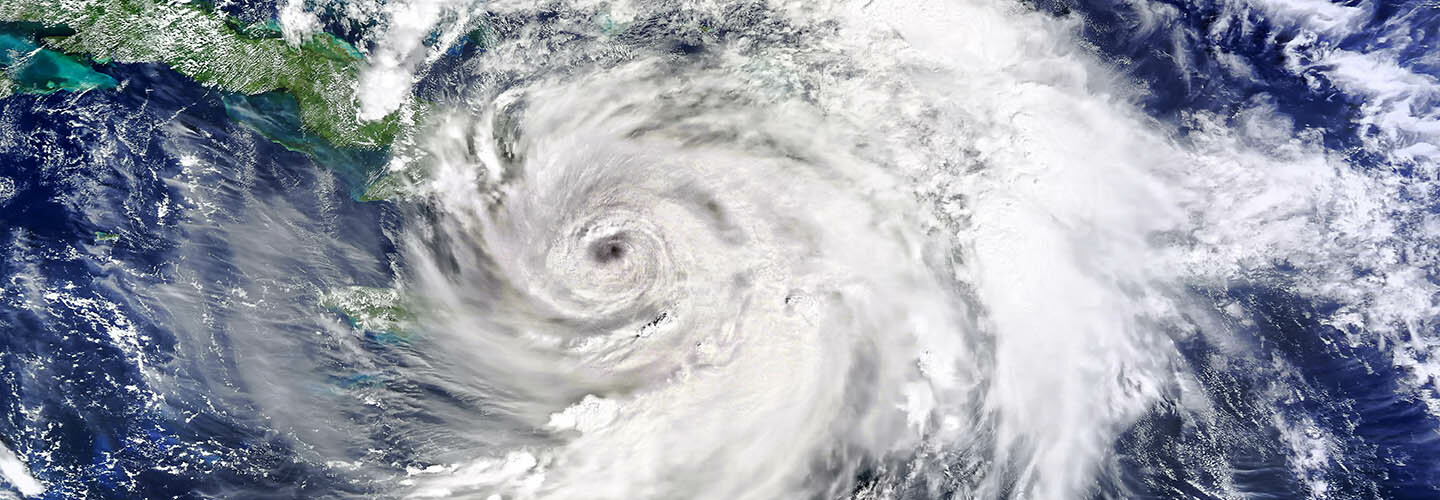While we can’t prevent a natural disaster, anticipatory efforts can turn the tide during hurricane season. Based on sea surface temperatures and the limiting atmospheric conditions associated with El Niño, forecasters recently increased both the Atlantic and Pacific region outlooks to “above normal” for the 2023 season. Longer term, the frequency and severity of hurricanes is predicted to increase. Planning and preparation are critical to ensuring employee and customer safety, as well as mitigating property damage, and limiting business downtime in the aftermath.
The most notable hurricane season in recent history was that of 2017, when “…10 hurricanes swept through the region (Caribbean to Texas). Six were major storms of Category 3 or higher, and three of those were Category 4 or higher when they made landfall…” The damage from these hurricanes amounted to approximately $265 billion. The following emergency prep proved invaluable to Stephens Insurance clients during the 2017 season. Now – prior to the crux of the hurricane season – is the time to create a new emergency plan or review, and familiarize employees with, existing strategies.
BEFORE THE STORM
- Establish a chain of command with an appointed person to take charge and make decisions
- Determine criteria for activating emergency plans
- Pay attention to emergency information and alerts
- Review or establish an evacuation plan
- Understand the storm timeline so that no one is at the location close to an evacuation deadline
- If an employee or customer is caught at your physical location, identify the safest place for them to take shelter - Review or implement a communication strategy
- Review or develop a business continuity plan
- Identify the critical aspects of your business
- Establish remote work capabilities if possible - Acquire emergency supplies:
- Cash
- Flashlights
- Batteries, cell phone chargers, etc.
- Food, water, and prescription medications for at least seven days
- Fuel/gasoline for generators
- Sanitary necessities
- First aid supplies
- Multi-tool and other tools
- Paper maps
- Walkie-Talkies/Sat phone
- Rain gear
- Blankets/cots/sleeping bags
- Ice chest, ice, and dry ice
- Tarps
- Personal protective equipment - Take photographs and video of property that could be impacted by a storm
- Inventory your assets
- Backup your computer data and upload to cloud systems
- Identify the strongest areas within the building and move all electronic equipment, computers, documents, assets, and other supplies to that area
- Reinforce exterior doors, particularly large garage units, with braces and additional coverings
- Cover all windows and wall openings with 5/8” marine grade plywood.
- Heighten security (secure building and premises – board windows, remove valuable personal items, valuable equipment, etc.)
- Locate first aid/medical facilities and their contact information
- Create list of emergency contacts (ambulance, fire, police, first responders)
- Create list of remediation professionals and vendors
- Turn off propane tanks and any unnecessary natural gas lines
- Brace or bring indoors any outdoor items that can be blown over
- Gather cleaning supplies – brooms, gloves, mops, disinfectants, buckets, etc.
- Continue taking steps to protect yourself from COVID-19 and other infectious diseases
Remember: Law enforcement and the National Guard may restrict travel or enforce a curfew. Be prepared to stay where you are when the storm hits.
AFTER THE STORM
- Delineate roles for your employees during the cleanup and reopening process and communicate those clearly
- Appoint a safety team or employee to monitor and ensure that any response made by your employees is done so in a safe manner - Provide employees personal protective equipment (PPE) including, gloves, masks, safety glasses, rubber boots, etc.
- Be aware of hazards – sewage, chemicals, down or exposed power lines, vermin, possible bacterial and fungal exposures, washed out or closed roads, etc.
- Take photographs and video of property post-storm indicating any damage
- Have the ability to compare before and after photographs and video - Prepare and inventory damaged items and set them aside
- Avoid throwing away items that could be used later
- Document serial numbers, number of items, etc. - Designate a media spokesperson. Any request or comment related to the business should be directed to that person
- Contact remediation specialist
if needed
- Retrieve computer data as soon as possible
- Establish early if there is damage to computer information or computers themselves - Notify your customers and suppliers if your business will be down for a period of time
- Keep track of any expenses
(receipts, POs, etc.) incurred through the cleanup process
- Start coding items on your general ledger under a special code for items related to the cleanup or extra expense as a result of the storm.
- Code these items under 911 or other unique account
- This makes it easier when pulling the information for the forensic accountant when they are assigned
PREPAREDNESS IS PRACTICAL
As we revised this checklist ahead of hurricane season, the wildfires in Hawaii had just abated. Our Hawaiian clients in the hospitality sector leveraged their emergency procedures plan for wildfires, which they had never anticipated doing, and are making good use of them. It is yet another reminder that completely unexpected natural catastrophes may now be the norm and planning ahead is critical.




